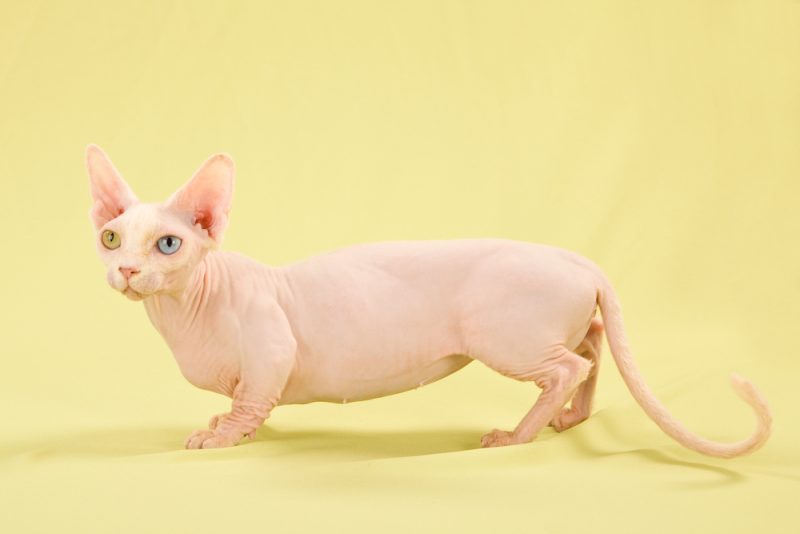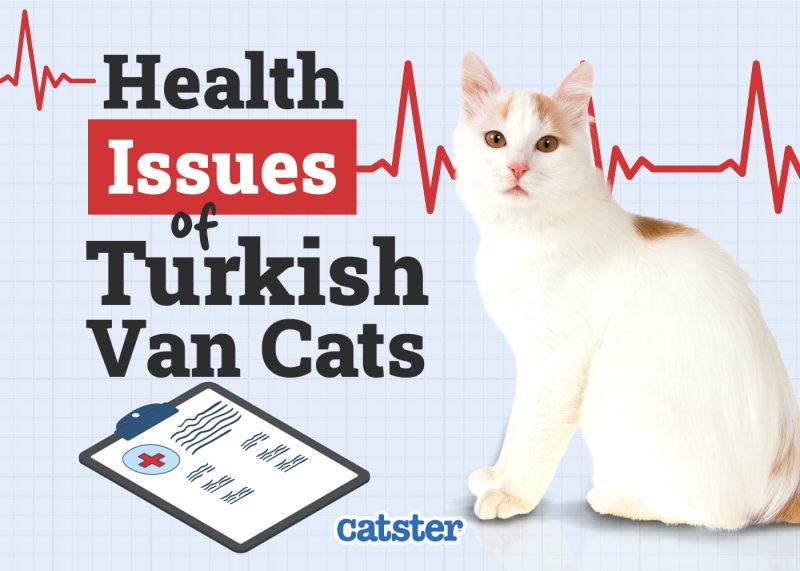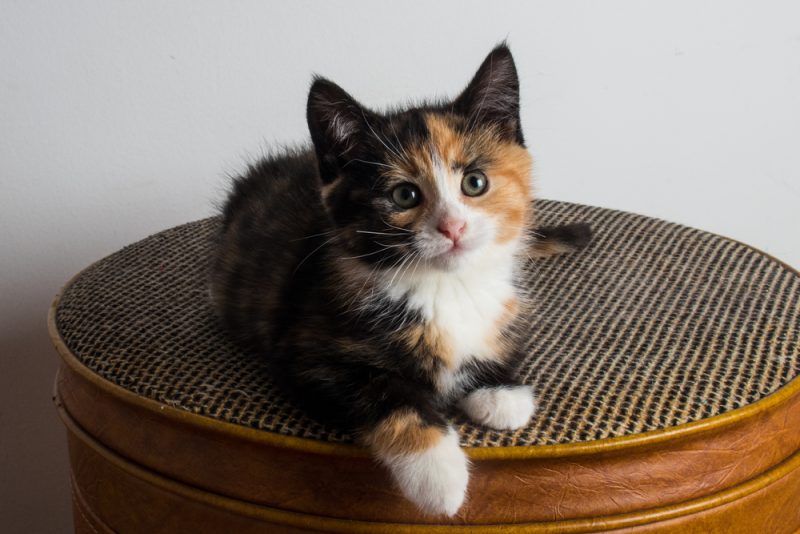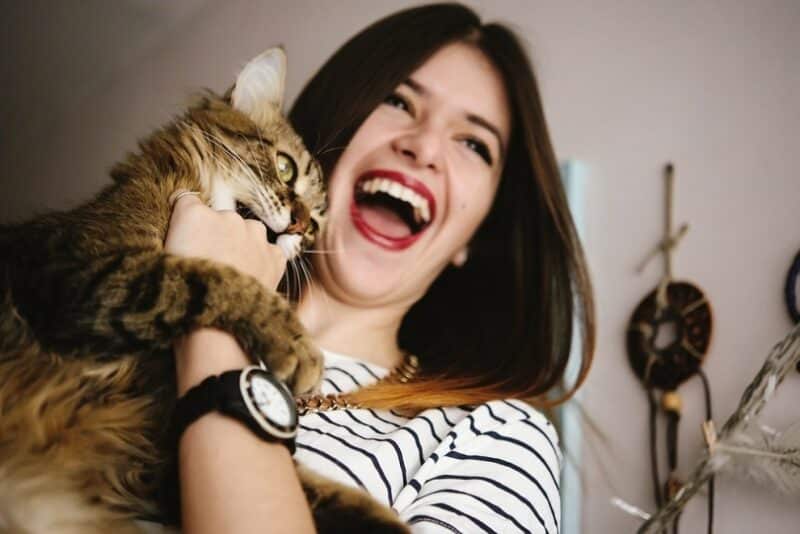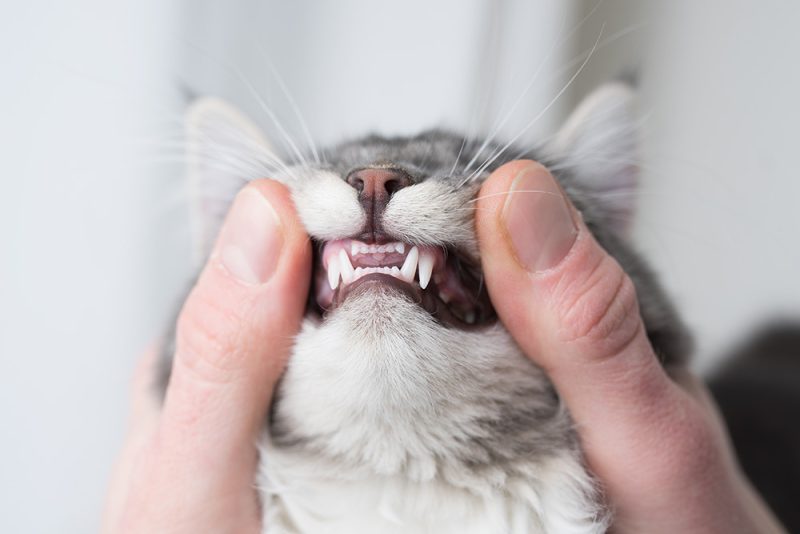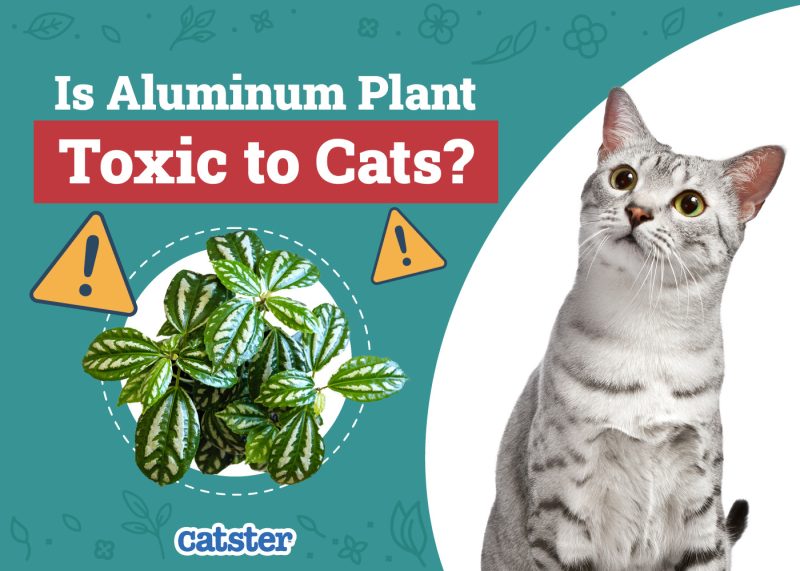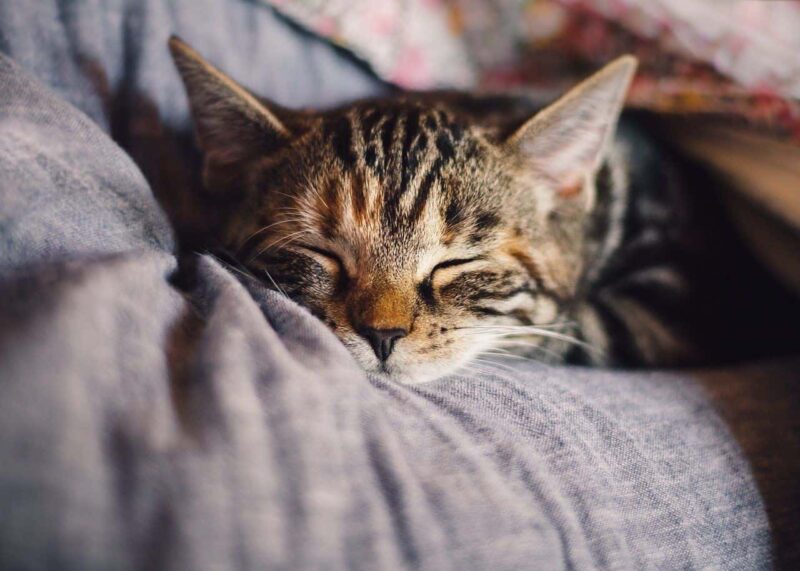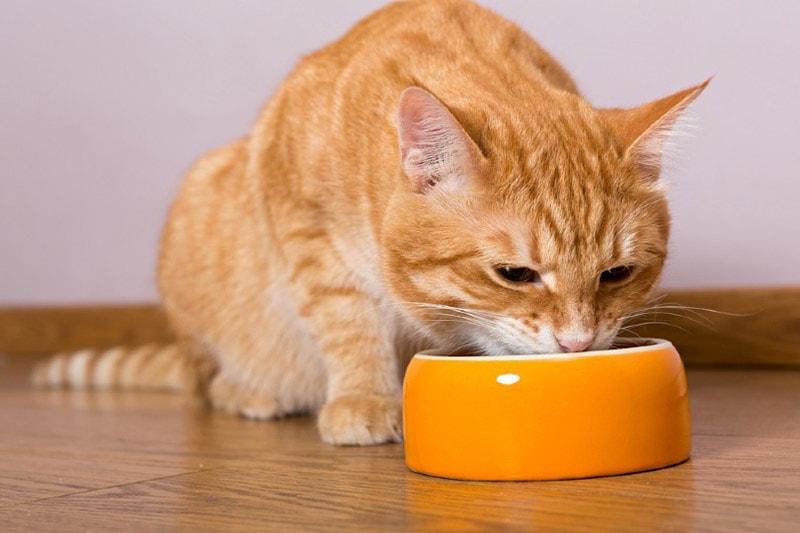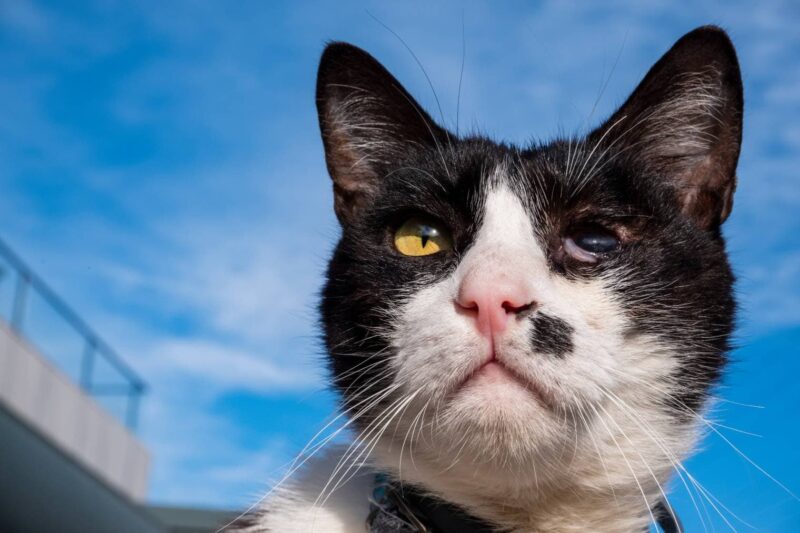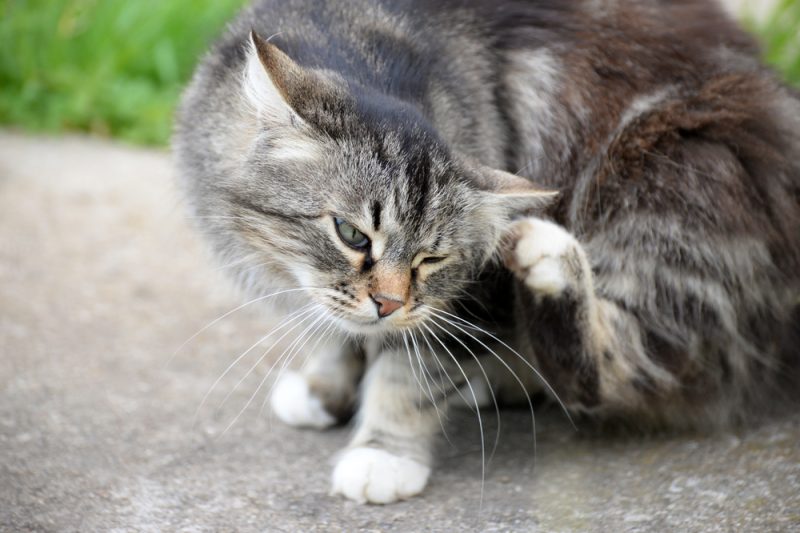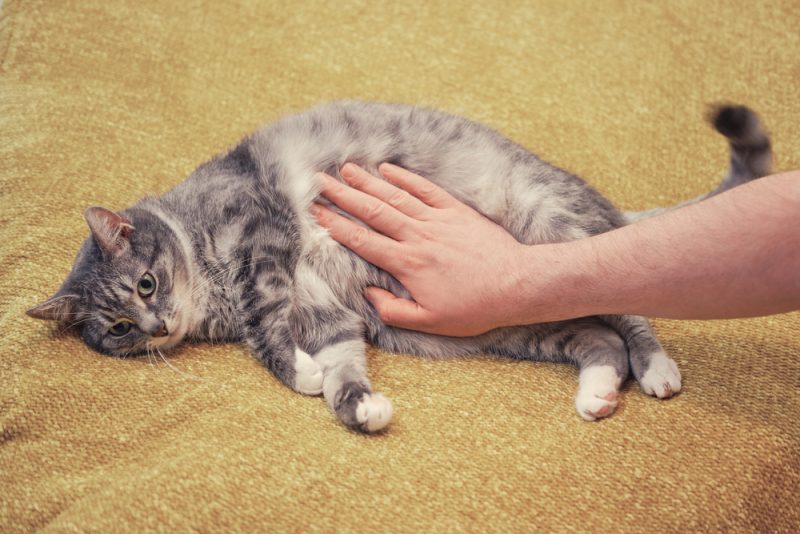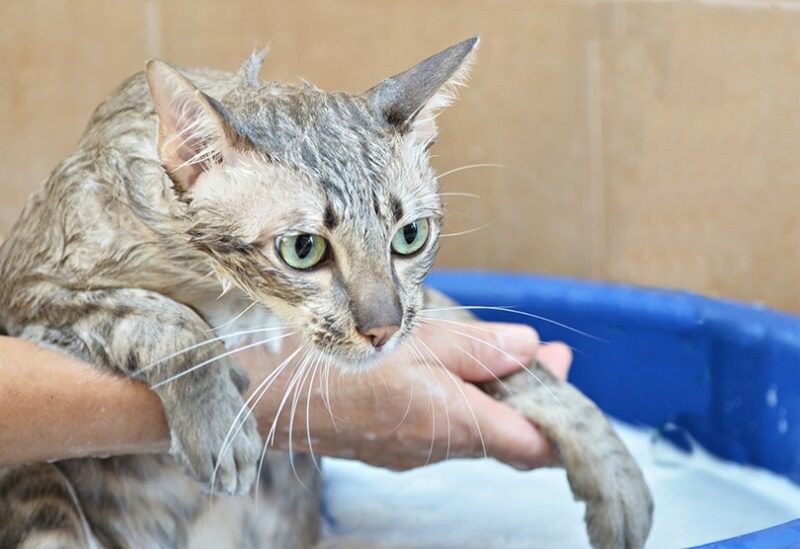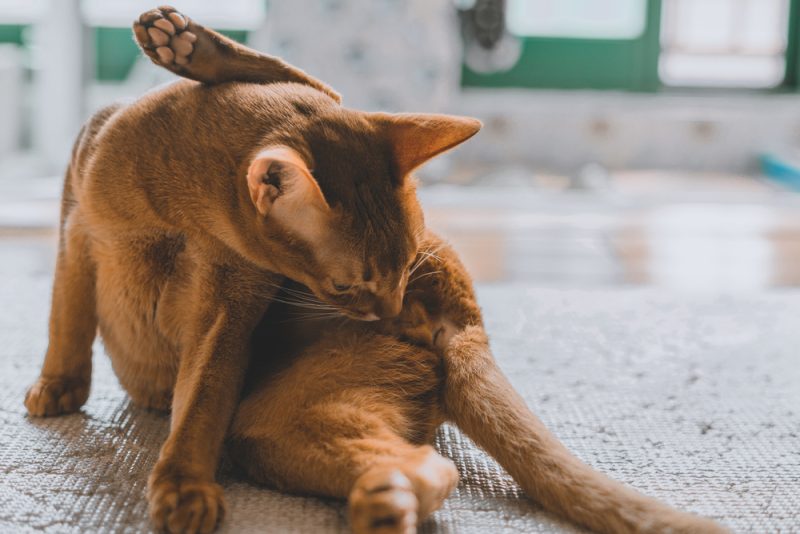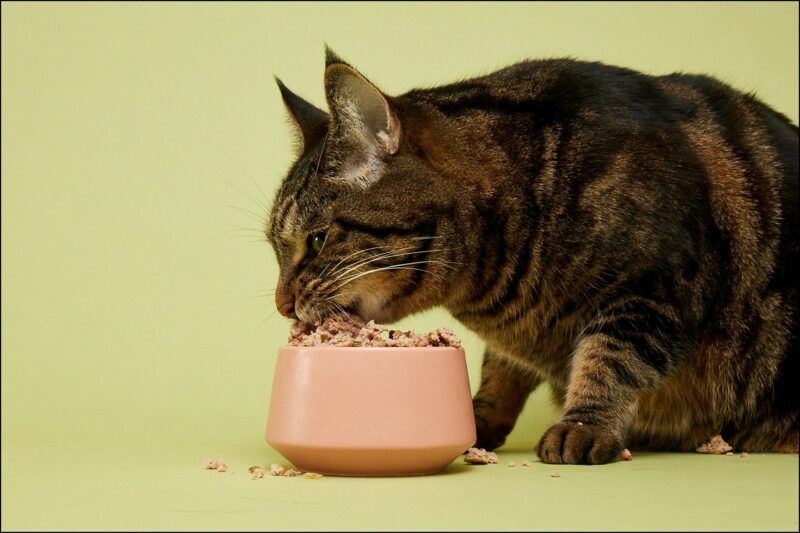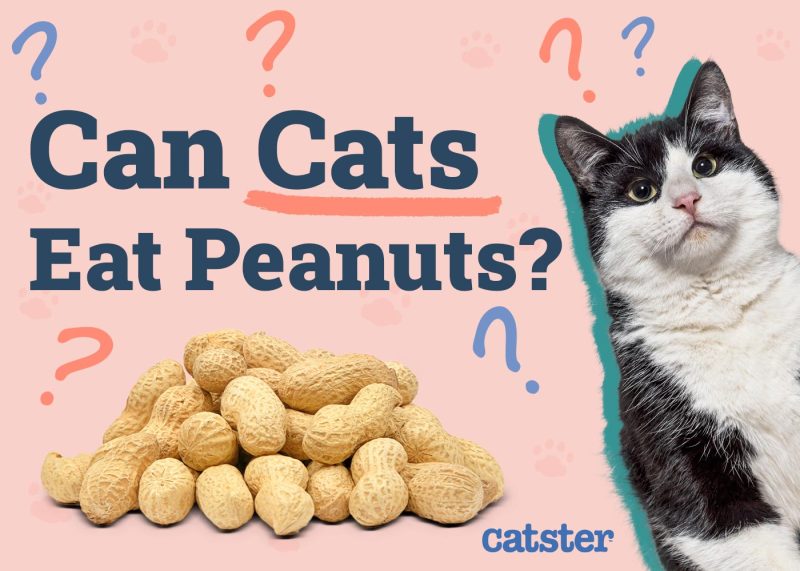In this article
Is it possible to make a cat even more adorable? Just the thought of them playing and doing what kittens do best— i.e., mischief and goofiness —makes millions of people smile every single day. But what if you threw a Munchkin cat into the mix? Munchkin cats are a relatively new breed of cats with short legs (or other features) due to a genetic mutation. However, these cats aren’t just adorable random occurrences. They’re specifically bred to be smaller. In 1997, they were controversially recognized by The International Cat Association (TICA). To date, TICA is the only international cat registry that recognizes the breed.
Also known as Midget, Dwarf, or Sausage cats, these furry felines come in all shapes and sizes. They can have long hair, short hair, or even no hair at all! Munchkins are separated into three categories: standard, super short, and rug huggers. However, these miniature cats aren’t being maintained as a pure line. Munchkin cats are popular breeding partners for other felines and produce new breeds.

The 7 Cat Breeds with Very Short Legs
Here is a list of some of the most popular Munchkin-hybrids available:
1. Napoleon cat
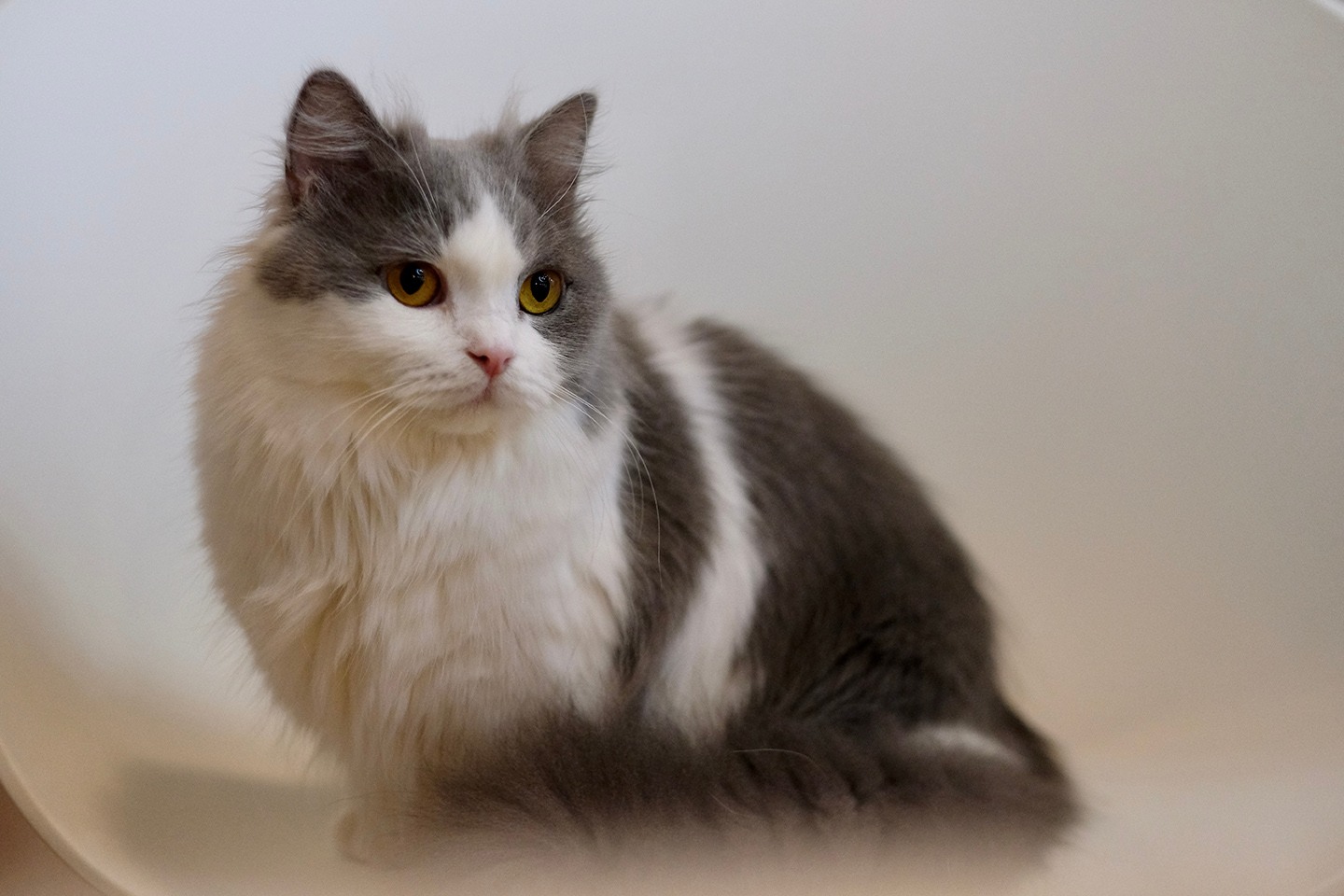
Named after the infamous French leader Napoleon Bonaparte, the Napoleon cat was developed by crossbreeding the Munchkin cat with a long-haired Persian. This cat breed is also known as the Minuet cat. At first glance, you’ll notice that they retain many of the Persian features, including a round face, round eyes, long hair, and a broad nose.
However, they keep the signature short legs of Munchkin cats. Due to their genetics, these cats with stubby legs are prone to many health issues, which they inherit from both their Munchkin and Persian sides.
- Achondrodysplasia (thickened joints, undersized jaw, curved spine, bowed legs, knock-knee posture) – this further predisposes the breed to lordosis and/or pectus excavatum. This is inherited primarily from their Munchkin side.
- Osteoarthritis – Their short limbs increase the risk of osteoarthritis – a condition that causes your cat’s joints to degenerate and become inflamed.
- Brachycephalic syndrome (from their Persian side) – This means they have all the issues of a brachycephalic as well – brachycephalic airway obstruction syndrome, epiphora, dyspnea, more likely to experience exophthalmos, and other eye and/or lacrimal duct issues.
- Dystocia – Additionally, they’re more likely to experience dystocia (difficulty giving birth)
- Mastication – This breed may also experience mastication (chewing) issues
2. Skookum cat
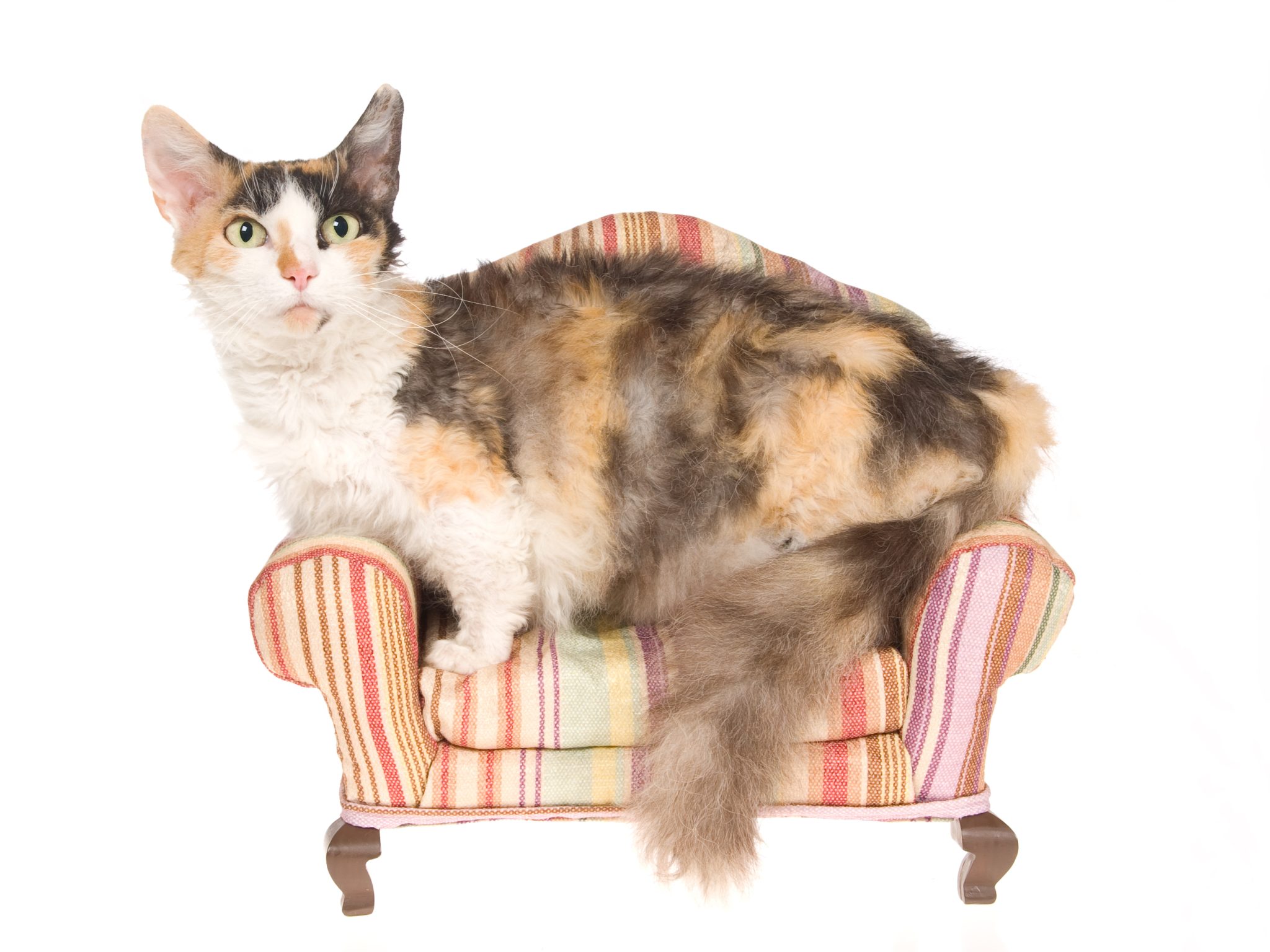
Skookum cats are another Dwarf hybrid, but this time, they’re crossed with the Curly LaPerm cat. The Skookum varies quite a bit regarding their coat and color variations and can be either short or long-haired. However, there are a couple of traits they normally share.
Their tails are uniquely long and plumed at their rounded tip, and their front legs are short and more compact. Like Munchkins, Skookums are considered great family cats due to their affection, intelligence, and playful nature.
3. Lambkin cat
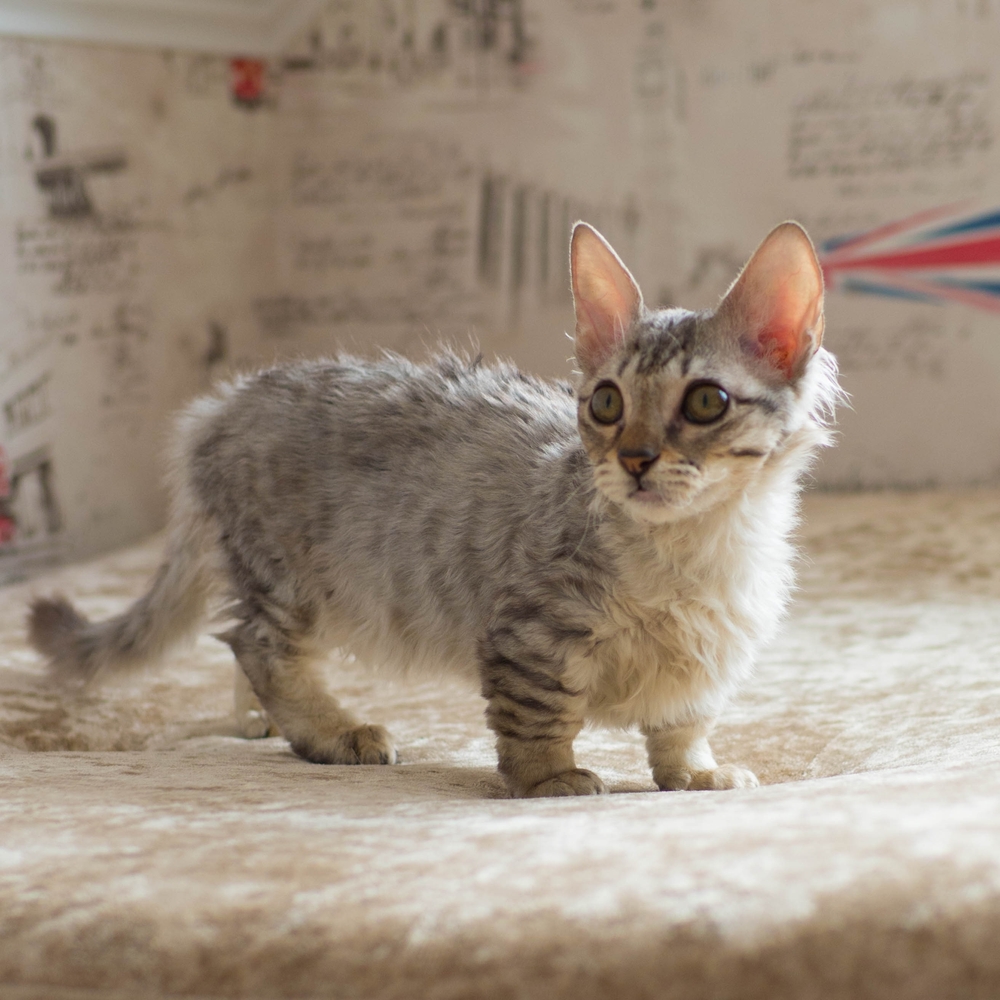
Like the Skookum, the cute furry Lambkin is still considered an experimental breed and not recognized by any major cat organizations. They’re produced from a Munchkin and a Selkirk Rex, and the little tyke has an anecdotally explosive personality.
If you are considering getting a Lambkin, you’ll need to understand the challenges that come with them. Much like the Munchkin, they are incredibly prone to spine and other skeletal system deformation issues. Therefore, it’s important to carefully select the breeder you wish to adopt this breed from.
4. Kinkalow cat
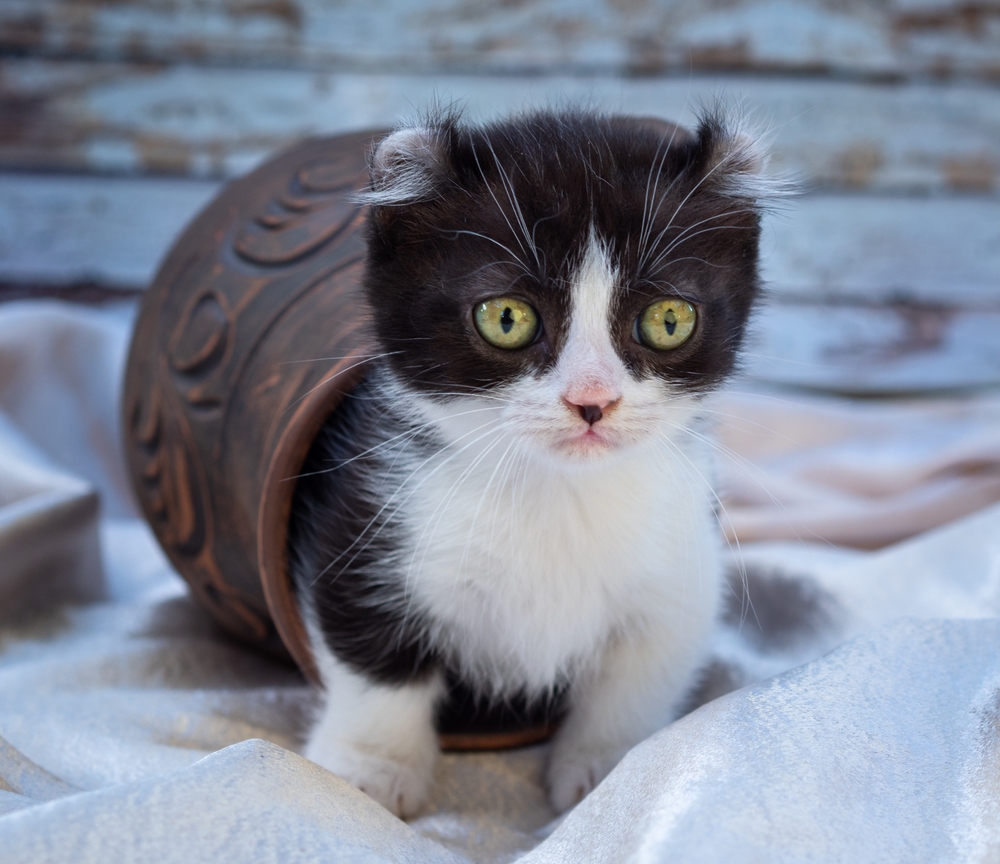
Out of all of the Munchkin hybrids, the Kinkalow is among the rarest. It’s a cross between an American Curl cat and a Dwarf Munchkin. The Kinkalow is a cute little rascal, too.
They have the short legs of a Munchkin cat, the up-turned curled ears of the American Curl, and a long straight tail. The breed is also known for being very playful and kind-hearted, making them excellent family cats.
5. Bambino cat
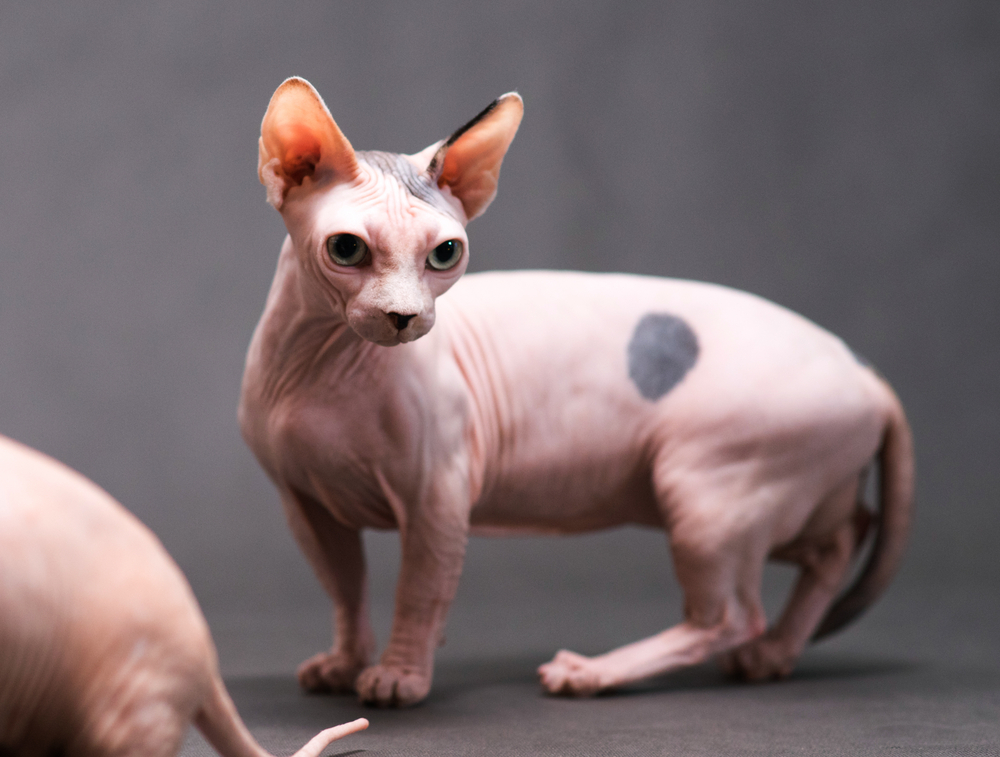
The Bambino truly is one of a kind. It’s a hairless, short-legged breed deriving from Sphynx and Munchkin cat lineage. However, it’s the Bambino’s personality that makes them special.
Owners swear that they love nothing more than running, jumping, and climbing! Even with their small stature and lack of fur, the cats are next to fearless and are highly affectionate with their families.
6. Dwelf cat
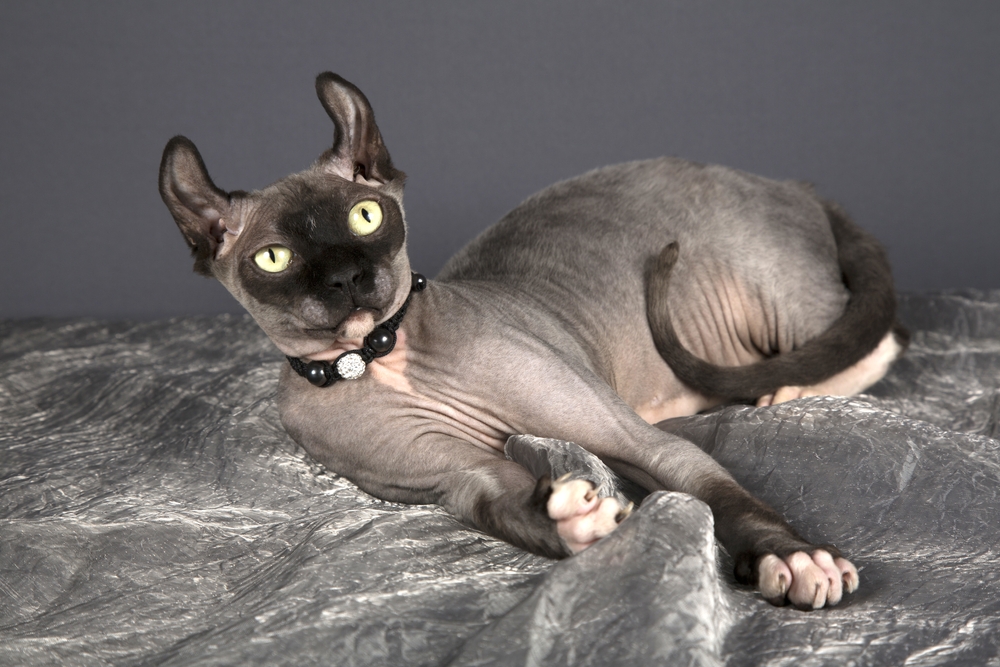
The Dwelf cat is a complex hybrid pulling from three breeds: Sphynx, American Curl, and Dwarf Munchkin. It’s another hairless breed like the Bambino, but it has curly ears lending their “elf-like” appearance and namesake.
Their look may startle you a bit since they resemble what you’d imagine a housecat from outer space to look like. But if you’re looking to adopt this extremely unique cat, be sure to find a quality breeder. Like other miniature cats, the Dwelf is known to have skeletal issues, including lordosis and pectus excavatum.
7. Minskin cat
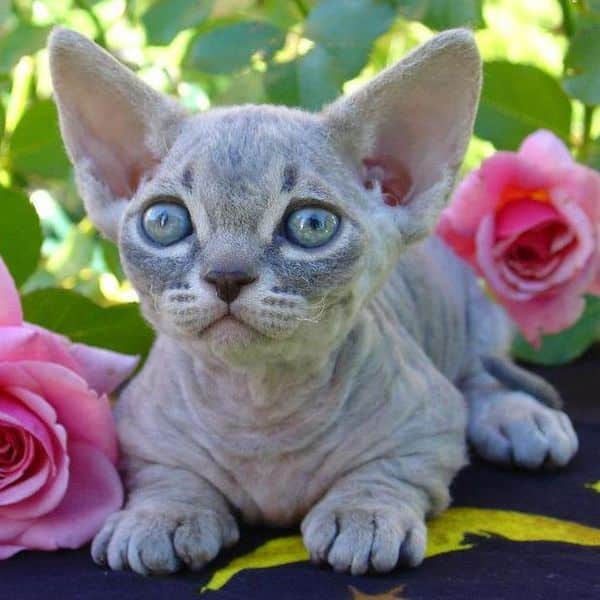
If you’re truly looking for a miniature cat, the Minskin cat may be precisely the breed for you. This cat breed with short legs is another complex hybrid (Sphynx, Devon Rex, Burmese, and Munchkin), this little kitty can come with or without fur.
The best way to tell this breed apart from others is their diminutive size and the long tail that is often much longer than their body. However, as you might’ve guessed, this experimental breed will also provide challenges in terms of the potential medical issues they may inherit from their lineage.
They will, in addition, need weekly grooming, particularly if they’re hairless. Hairless cats are usually bathed weekly with mild and non-abrasive cat shampoo.

About Short-Legged Breeds
It is important to keep in mind that short-legged cat breeds (such as the Munchkin) are considered very controversial in the world of cats. Many veterinarians and cat registries discourage their breeding and adoption, as these cats have genetic conditions that reduce their quality of life; they cannot function like a normal cat would and are predisposed to several health issues from their unique skeletal system.
These breeds are also illegal in many parts of the world, and breeding them may also be prohibited, depending on the laws where you reside. It’s strongly suggested that you research your prospective breed thoroughly before adopting them. Whenever in doubt, remember that you can also consult a veterinarian for more information to help you make a more informed decision.
If you need to speak with a vet but can't get to one, head over to PangoVet. It's an online service where you can talk to a vet online and get the advice you need for your pet — all at an affordable price!

Please note that in the list that follows, only the 1st breed is recognized by a single cat registry (TICA). The other breeds are all experimental, therefore, we currently lack sufficient information about the full extent of the possible health issues they would face as pets. It also means that no international cat registry would recognize them; if you intend to have your cat compete in cat shows, opting for an experimental breed may result in disqualification.
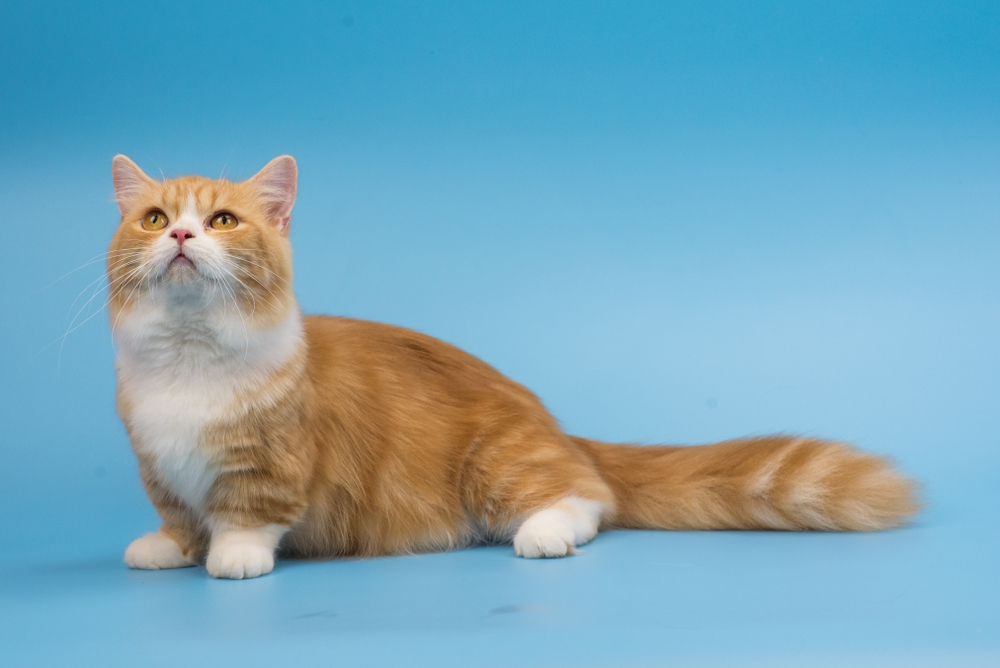

Conclusion
Munchkin cats and their hybrids are still relatively new to the breeding game. Although these cats result from intense breeding regimens, they’ve been known to have several health problems. However, it’s best to research reputable breedings before adopting a short-legged cat and talking to a vet about their health risks. These cats are generally loving, playful, and downright adorable, which probably means that we’ll see a lot more of the short-legged hybrids running around soon. However, they are not without their fair share of controversies and health issues, which you should be mindful of.
Featured Image Credit: Linn Currie, Shutterstock
